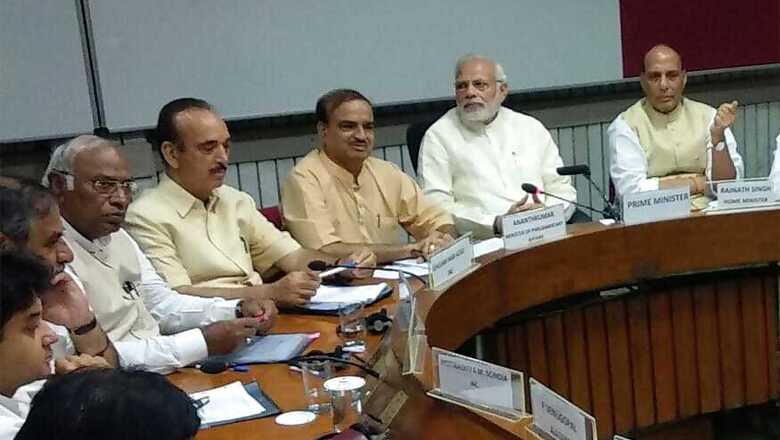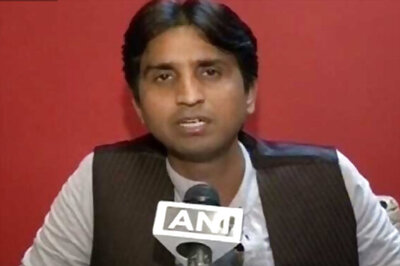
views
New Delhi: Narendra Modi government will face its first no-trust motion in the Lok Sabha during the last year of its office.
The motion was moved by TDP MP Kesineni Srinivas. The speaker admitted the motion as over 50 opposition party MPs stood in its support.
On the first day of the Monsoon Session of Parliament, Telugu Desam Party (TDP) moved the motion which was admitted by Lok Sabha speaker Sumitra Mahajan.
The Congress led by former party president Sonia Gandhi was seen pressing for the motion in the lower house in what could turn out to be a test of opposition unity ahead of the general elections next year.
The speaker will allocate date and time for the debate and discussion on the motion.
The TDP led by Chandrababu Naidu had quit the ruling NDA earlier this year seeking special category status for Andhra Pradesh.
A similar motion on the government by the party could not be taken up earlier as the Budget session was completely washed out.
The current strength of the Lok Sabha is 535 and the BJP with 273 MPs has a clear majority in the House along with its allies.
Parliamentarians from seven opposition parties had on Tuesday written to Sumitra Mahajan expressing "deep anguish" over the manner in which the BJP allegedly circumvented constitutional norms during the last Parliamentary session.
The letter was signed by Congress leaders Mallikarjun Kharge and Jyotiraditya Scindia, CPI(M) leader Mohammad Salim, SP’s Dharmendra Yadav, NCP’s Tariq Anwar, RJD leader Jay Prakash Narayan Yadav, CN Jayadevan of CPI, PK Kunhalikutty of Kerala-based IUML and AAP’s Bhagwant Mann.
Speaker Mahajan had last week written to opposition parties expressing concern over the frequent disruptions in Parliament and asked them to introspect while ensuring that the dignity of Parliament was not undermined.
The opposition's letter, on the other hand, claims that the BJP bulldozed through the previous Lok Sabha session by not allowing debate on several important bills, “which will have bearing on constitutionally guaranteed rights being converted into virtually 'single-house bills' by way of certifying them as money bills".



















Comments
0 comment